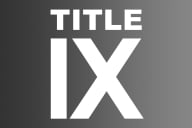You have /5 articles left.
Sign up for a free account or log in.
Opening up The New York Times last week, I stumbled across an article that outraged me. "Colleges Chase as Cheats Shift to Higher Tech" detailed the struggle of some academics against new, high-tech forms of "cheating" that are based in Internet use, iPods, cellphones, and PocketPCs. The tone of the article was one of dismay at the collapse of morality in education. As I watched the article climb the "most e-mailed list" on the Times Web site through the day, my outrage increased.
Few would want to be caught defending "cheating," especially in academe, especially in a time when we in education struggle with everything from steroid abuse, to massaged college applications, to fraudulent journalism, to high-profile plagiarism. And no one really wants to encourage or even condone most dishonesties -- in the classroom or out. There is, however, always a scale of potential harm on which we measure human sin, and for me, the most apparent dangers mentioned in this article were not any student behavior described, but the fact that one journalism professor quoted in the article is using valuable college course instructional time to give spelling tests (the article says that he “caught students trying to use spell check in an exam partly testing spelling ability") and that so many American university faculty and administrators are failing to see where the actual problem lies.
As a graduate student, as a course instructor, I have come to the conclusion that I welcome the arrival of the world -- in the form of ubiquitous contemporary technology -- into the stultified environment of higher education. I must also welcome these new methods of cheating because, perhaps, only under the pressure of this now powerfully armed student revolt will high school teachers and college professors finally begin to adapt to new realities and begin to actually teach and facilitate learning and assess students in real and relevant ways.
This one instructor’s spelling tests are an easy target, but he is not unusual. In classroom after classroom, all across the nation, students are being asked to memorize and regurgitate trivia at the expense of time spent learning what is essential in the 21st Century. As one letter to the Times editors asked, "In today's information age, where a body of information in all but the narrowest of fields is beyond anyone's ability to master, why aren't colleges teaching students how to research, organize and evaluate the information that is out there?" Why, one must ask, would a journalism professor in 2006 be testing skills from the Remington typewriter and linotype era? Reporters I know use tape recorders, PocketPCs, and laptops, enter their stories electronically via software that has spell-check, and send it to their editors. If the journalism professor in the Times article is teaching spelling (and if he is not teaching spelling why would he be giving a test assessing that skill?), he is not using that time for skills – knowing how to set up spell-checkers, how to use and not use grammar checkers, how to properly refine auto-correct and word prediction software -- that will be essential to his students’ survival.
It has long been academe's dirty little secret that bad instructors and bad assignments create cheating. If knowledge of a meaningless list of facts is being assessed, if spelling is being measured, if memorization of equations is the goal of a course, students can and will cheat. Perhaps they should cheat. As a John Jay College instructor, Daniel Newsome, said in a letter about the Times article, "In the real world, we use cheat sheets all the time. Why not in school? Life is too short to fight against the real world and constantly be disappointed with the outcome. Embrace cheating ... but perhaps give it a new name." If, however, processing information is the issue, if creative solutions are being sought, if students are being asked to develop new syntheses, then cheating will be much rarer, and much more difficult, technology use will become essential, and learning will be far more relevant.
We need to face the facts. If I need a quick answer outside of school and can't quite remember what I need to know, I will Google the topic, or I will call someone, or text someone, or e-mail someone. One of these sources will, if I know how to operate this technology efficiently and effectively, provide me with the essential information. That's not cheating, that is life. Only in a classroom is this considered "wrong." Everywhere else it is viewed as "intelligent," because we all know that we cannot know everything.
Outside the classroom, cell phones, PDAs, PocketPCs, Internet access is everywhere because we need it and use it in our information driven lives. But inside the classroom, the very skills humans need to succeed are discouraged and viewed with alarm. So schools do not teach effective use of Google, of text-messaging, of instant-messaging. They don't teach collaboration. They barely teach communication outside the stilted prose only academics use. No wonder students are prepared for nothing except more school.
"If they'd spend as much time studying" as they do cheating, a University of Nevada at Las Vegas dean says in the Times article, "they'd all be A students." The question for the dean is, what would they have an "A" in? Rewriting Wikipedia to please a professor? Spelling? Regurgitating information that any competent search engine user could find in thirty seconds? Perhaps the skills the "cheaters" are learning are the far more valuable ones. These skills will carry them forward in ways memorization of spelling, quadratic formulas, scientific terms and historical dates simply will not.
What must be learned through education is the processing of this instantly available information. How do you find what you are looking for? How do you check for quality and accuracy? How do you cite sources and avoid plagiarism? How do you investigate the sources of others or determine when others have plagiarized? Just three days after publishing the "Cheating" article the Times itself had to publish a lengthy retraction of a front page story. The prominent printing of false information could have been avoided, the newspaper's Public Editor noted, had the news staff simply Googled its own articles. Nothing could illustrate the changing needs of curriculums more clearly.
There is also the issue of educational discrimination. When schools fight against technology, they are fighting access to education for people who learn and function differently. Technology, from computers to calculators to classroom cellphones, enables a wide variety of students who would otherwise be left out to participate and succeed. Technology in the hands of all students allows disabilities and functional deficits to be invisibly accommodated so that knowledge can be developed, nurtured, and evaluated on terms fair to everyone.
So, no, the problem is not cheating. The problem is firmly one of instructional and evaluation technique. It will not be solved until teachers and professors figure out that understanding and the ability to work with knowledge is what counts, and that anything you can instantly Google, or store in your calculator, or retrieve via quick text-message or phone call need not be remembered, nor tested, because, obviously, you will always be able to instantly Google it, or store it in your cellphone, or get someone to text it to you.








